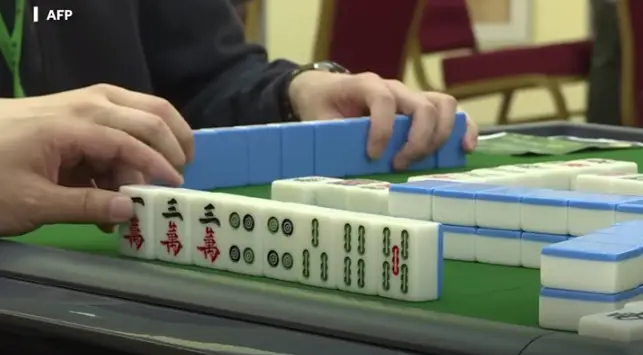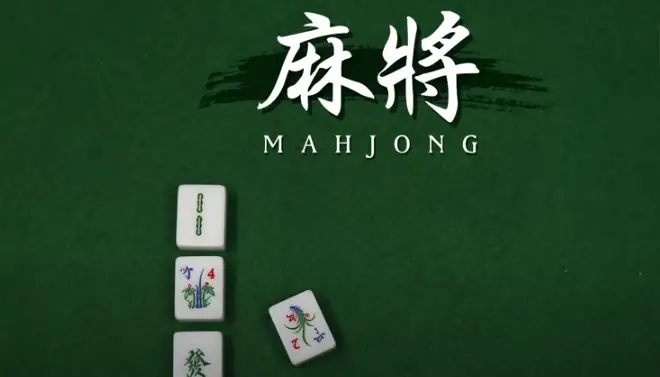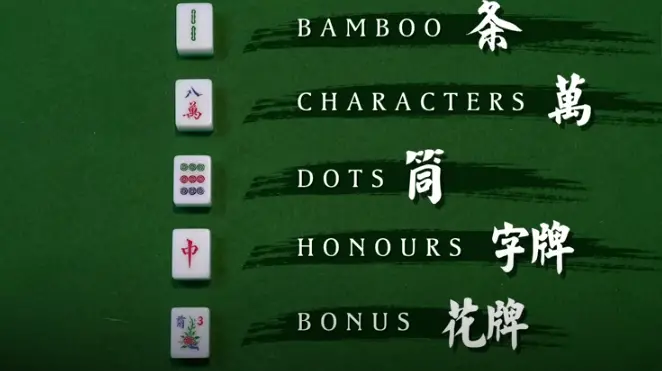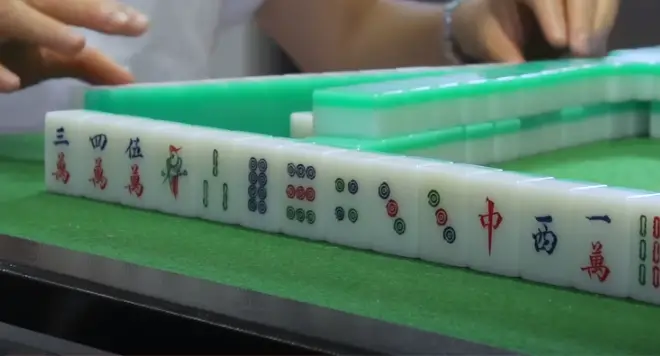Is Mahjong Hard to Learn?
Mahjong is a game played with tiles that has been played across Asia for more than 300 years and is now growing in popularity worldwide. While the game can be difficult to learn, it’s easy to master the basics.
Mahjong is a difficult game to master, particularly for those unfamiliar with its rules and play. The game was developed in China and combines strategy, skill, and luck. At first glance, the game could appear complex because of its intricate rules and the many tiles involved. Players must comprehend the various types of tiles, the many patterns and combinations that could be made, and the rules of drawing and throwing tiles.
Furthermore, there are a variety of varieties of Mahjong in different areas, which adds to the difficulty. But with perseverance and practice, the process of learning Mahjong becomes manageable.
Various resources, including books, online tutorials, and videos, can aid beginners in understanding the basics of the game. As players progress in experience and gain familiarity with the guidelines and rules of the game, Mahjong becomes an enjoyable and entertaining game to play.
How Long Will It Take to Master the Art of Playing Mahjong?
Learning to play Mahjong is a process that can differ in terms of time and duration based on factors like the individual’s aptitude, dedication, and the availability of educational resources. Here are a few important points to assist in understanding the process of learning:
- Basic Rules and Tile Recognition: Understanding the basics of Mahjong and becoming acquainted with the tiles is the initial step to mastering Mahjong. It involves understanding the various kinds of tiles (suits, honor tiles, suit tiles, or specific tiles) and their value and importance. Through consistent practice and research, understanding the fundamental aspects typically takes only a couple of hours or a few days.
- Combinations and Hands: Mahjong is about forming certain combinations of tiles to form winning hands. The various combinations, like Pongs (three identical tiles), Chows (three consecutive tiles in identical suits), or Kongs (four identical tiles), may take a bit of time.
Learning to meld and understand the patterns needed for winning hands will require additional practice. It may take a couple of weeks or months to get confident with various combinations of hands. - Strategy and Gameplay: Like all games of strategy, Mahjong involves developing a sense of strategy and decision-making. This involves learning when to take an undiscarded tile, the right time to announce a Kong, and the best time to focus on the winning hand. Learning these skills and understanding gameplay specifics could require several months or years of consistent play and practice.
- Variation and Mastery: Mahjong offers a variety of local variations, each with its own rules and game mechanics. Based on the variation you decide to concentrate on, it might require an additional amount of time to learn particular rules, strategies, and guidelines.
Furthermore, mastering Mahjong requires constant learning, playing with experienced players, and participating in tournaments and competitions. This level of skill will require several years of dedicated practice and dedication.
Playing Mahjong is a slow process that takes patience, regular practice, and exposure to Mahjong. Although the basic rules can be learned in several days, mastering the game and understanding it could take a few months or even years, depending on your efforts and the opportunities to play.
Are You Able to Learn Mahjong?
It is indeed possible to learn to play Mahjong, in particular, because of the wide range of resources available for learning. Here are some important things to keep in mind when learning Mahjong:
- Learning Materials and Resources: There are a variety of books, online tutorials, video guides, and mobile apps available to provide step-by-step instructions and explanations of the game of Mahjong. These materials usually contain diagrams, hands with examples, and in-depth descriptions of the strategy and rules. These resources can help you learn the fundamentals of the subject and start a new hobby.
- Begin by learning the basics: Understand the fundamental rules, the tile recognition system, and the game mechanics. Be familiar with the different kinds of tiles, their values, and the goals for the game. Learn to draw and dispose of tiles and practice making basic combinations such as Pongs and Chows. This will be a good starting point to further learn and develop skills.
- Practice and play: The most effective method to increase your skills and understanding of Mahjong is to practice. Set up a practice zone or compete online against computer-based opponents to get familiar with it.
As you continue to play games, you’ll begin recognizing patterns, understanding various strategies, and becoming more familiar with the game’s rules. Continuous practice will help you build your skills and acquire a greater comprehension of what the game is all about. - Learn from experienced players: Although it is possible to learn Mahjong, seeking advice from professional players can significantly improve your learning experience. Get involved in your local Mahjong club or a community online that lets you get acquainted with experienced players.
Participate in discussions with them, ask questions, and observe their game. The experience of experienced players can offer valuable tips and strategies that aren’t accessible through self-learning resources. - Progressive Learning: As you build confidence, you can gradually advance to more advanced subjects and techniques. Learn about various hand rankings, combinations, and specific rules about the Mahjong variant you’re attracted to. Keep challenging yourself by playing more powerful opponents or in friendly competitions to enhance your abilities.
Although it will require extra effort and self-motivation, educating yourself on Mahjong can be done. Use learning tools, take regular practice sessions, seek expert guidance, and slowly improve your understanding and abilities. With perseverance and dedication, you will learn to master playing Mahjong by yourself.
Does Mahjong Improve IQ?
Although Mahjong is an enjoyable and strategically challenging game, there is no proof that it specifically increases IQ (intelligence quality). But participating in activities that require a lot of mental effort, like Mahjong, may benefit the brain. Let’s look at some potential benefits:
- Mental Stimulation: Mahjong is a game that requires you to consider your thinking, make strategic choices, and plan for the future. Mahjong involves analyzing patterns, making assessments of probabilities, and adjusting to changing conditions. Engaging regularly in these mental stimulation activities can improve cognitive abilities such as solving problems, making decisions, and recognizing patterns.
- Memory and Concentration: The game of Mahjong requires remembering the tiles taken away, keeping track of the remaining tiles in play, and recollecting the tiles required for certain combinations. This activity can help strengthen your memory and improve your concentration. You may notice improvements in your capacity to retain information and stay focused in different areas of your life by challenging and exercising your memory abilities.
- Social Interaction: Mahjong is played most often within social environments, which permits players to participate in social interactions and develop interpersonal abilities. Playing Mahjong alongside others can develop negotiation, communication, and collaboration. Healthy social connections and strong relationships benefit overall health and may indirectly improve cognitive capabilities.
- Stress Relief and Relaxation: Engaging in enjoyable activities like Mahjong can reduce stress and encourage relaxation. Chronic stress can affect cognitive performance; finding ways to relax can help improve mental health and cognitive capabilities.
Although Mahjong does not necessarily increase IQ, the mental challenges and abilities involved in playing the game may improve cognitive performance. It is important to remember that results for each person can differ, and the benefits to the cognitive functioning of Mahjong will likely be based on the specific skills employed during play.
To reap the maximum benefits from your cognitive abilities, it is recommended to participate in a range of mentally stimulating activities along with Mahjong and other games, like reading, puzzles, and taking classes in new subjects.
Does Mahjong Require Math?
Mahjong involves some basic math calculations. However, it doesn’t rely on math-related skills that are complex. Here are some key things to think about concerning math in Mahjong:
- Counting Tiles: When playing Mahjong, players must keep track of the tiles that have been taken or left by their fellow players. Counting tiles will help identify which tiles are available and can improve the accuracy of forecasting the future draw. This requires basic knowledge of counting; however, it’s not too difficult and can be accomplished mentally.
- Scoring: Mahjong involves the calculation of scores based on the number of hands that win and the rules specific to the variant played. Knowing the scoring system typically requires basic math skills, for example, adding up the scores of various combinations and applying multipliers based on specific circumstances.
The scoring calculations could differ due to regional variations; however, they are usually simple and can be learned through practice. - Probability and Probability Estimation: Although not a purely mathematical game as such, the concept of probability estimation is a factor in Mahjong. The players are often required to determine the probability of drawing certain tiles based on available information, including tiles thrown away and those already in their possession.
This information informs their decisions and their strategic choices throughout the game. Although it is based on a certain degree of probability-based reasoning, it does not require complex math calculations or formal theory. - Tile Values and Sequences: Understanding the numerical value associated with different tiles and recognizing patterns of numbers that are consecutive (Chows) is a part of the game Mahjong. These are fundamental mathematical concepts and patterns as opposed to advanced math.
Although Mahjong is a game that requires some degree of mathematical knowledge and calculation, it’s not mathematically demanding. Basic counting, scoring probability estimation, and pattern recognition are useful, but more complicated mathematical calculations aren’t usually needed. Mahjong is based on memory, strategy, and decision-making skills that make it accessible to gamers with no mathematical expertise.
FAQ’s
How much time does it take to master Mahjong?
“You can’t learn it all at once. It’s something you can learn and then expand on. Link claimed that it typically takes new gamers a few weeks to understand it because there is so much to take in. Even then, they will want a lot of playtime in between sessions, at least once a week.
Does Mahjong raise IQ levels?
Discussion. Children that consistently attended the Mahjong courses for a year showed improved IQ scores in this study.
Is maths necessary for mahjong?
Getting Math Facts Right Playing Mahjong will take some luck, strategy, and math skills.
Does Mahjong need talent or luck?
The mahjong game depends more on ability than chance. Though sometimes drawing the incorrect card can help you win the game. There are times when a person has high talents but very weak starting cards, and they use strict card management to keep other players from winning.
You can play Mahjong by yourself?
When playing mahjong patience with a partner, the objective is to collect the most pairs, be the last player to match a pair, or to score the most points.





















